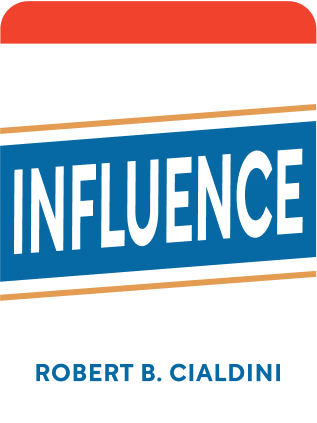

This article is an excerpt from the Shortform summary of "Influence" by Robert B. Cialdini. Shortform has the world's best summaries of books you should be reading.
Like this article? Sign up for a free trial here .
Have you ever used a free trial period? Did you cancel before paying for the real subscription? Or did you feel like you should at least give them something if you got something for free? This reciprocity marketing strategy relies on you feeling obligated.
Reciprocity marketing is a sales strategy in which something free is offered in the hopes of creating a reciprocal obligation. It’s harder to say no to someone after they’ve offered you something first.
See when something is a genuine offer and when it is reciprocity marketing.
How Does Reciprocity in Business Work?
The Reciprocity Principle tells us to repay others when they do something for us. This fixed-action pattern of behavior is so deeply ingrained that we hardly think about it, yet we practice it all the time. When a friend treats you to lunch, you make sure you pick up the check the next time you go out; when your neighbors invite you to a party, you invite them the next time you’re hosting an event.
That the phrase “much obliged” is a synonym for “thank you” is a powerful encapsulation of the Reciprocity Principle: we naturally feel obliged, indebted to those who have done something for us. But it can be manipulated through reciprocity marketing.
Unfortunately, the Reciprocity Principle also represents an evolutionary blind spot that compliance practitioners know how to exploit. Reciprocity in business strategies is used to increase sales or retain customers. They know that you’re more likely to feel obliged to them if they offer you some small gift or token gesture of kindness before they make their request.
Resisting Reciprocity Marketing
It’s important to defend yourself against compliance practitioners who employ the techniques we’ve discussed. It’s hard to tell if someone is using reciprocity to exploit you or if they’re genuinely offering you something with no expectation of anything in return. Accepting an invitation to a party and then inviting that person to your own party isn’t being exploited by the Reciprocity Principle: that’s exactly how networks of obligation are supposed to work. There are plenty of people in our lives who simply wish to do acts of kindness for us.
Clearly then, you can’t just refuse gifts and offers of help from everyone. If you did that, you’d end up being pretty unhappy and socially isolated: as we’ve discussed, reciprocity is the glue that holds so much of society together. It’s more than reciprocity in business arrangements.
The solution is to distinguish between exploiters and benefactors, and to treat the former objectively. Figure out if the person is an exploiter by asking yourself if they stand to gain by your acceptance of their favor. Are they doing something for you just to get something in return later? If so, then it’s reciprocity marketing: you should think of these interactions as a form of social predatory lending.
Once you’ve determined that someone offering you a gift, sample, or favor is really employing a compliance trick, you should cut off your reciprocity instinct. See the gift, not as a gift, but as a sales device. You have no social obligation to return a trick with a favor. Don’t think of accepting the favor as putting you in their debt. You’re not. Reciprocity marketing is a strategy.
It’s useful to be explicit in calling out the compliance practitioner for exactly what they’re doing. When you see reciprocity marketing, you can tell them, “I see what you’re doing. You’re offering me this free gift in the hopes that I’ll be more inclined to buy whatever it is you’re really selling. But I don’t owe you anything, because your free offer was made in bad faith.”
In fact, by taking their free sample and not making a subsequent purchase, you are living up to the Reciprocity Principle. You’re matching their attempt to take advantage of you by taking advantage of them. That’s reciprocity in business flipped around.

———End of Preview———
Like what you just read? Read the rest of the world's best summary of Robert B. Cialdini's "Influence" at Shortform .
Here's what you'll find in our full Influence summary :
- How professional manipulators use your psychology against you
- The six key biases you need to be aware of
- How learning your own biases will help you beat the con men around you






